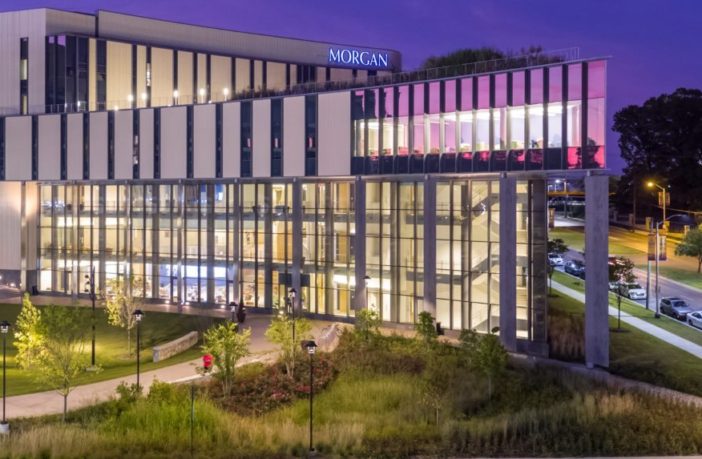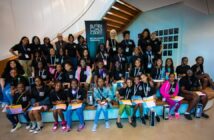 Morgan State University’s National FinTech Center is the first of its kind to offer education and training in blockchain technology. (Courtesy of Morgan State University)
Morgan State University’s National FinTech Center is the first of its kind to offer education and training in blockchain technology. (Courtesy of Morgan State University)
By Aysia Morton
Special to the AFRO
In 2019, Morgan State University became the first Historically Black College and University (HBCU) to create an on-campus center for blockchain and financial technology (FinTech). The National Fintech Center is a self-proclaimed center of excellence. It’s the hub of the HBCU Blockchain and FinTech network and actively engages faculty and students at all HBCUs for research, curriculum and education. As the first of its kind, the center aims to provide in-depth knowledge and understanding of blockchain technology and its impact on finance, business and more.
Multi-year funding for the center is provided by Ripple, a global digital payments network. The Centers Program Coordinator, Judith Schnidman, said that many potential sponsors are doing their part to reach minority communities and connect them with opportunities to learn about financial technology. A large part of reaching minority communities is supporting HBCUs, along with Ripple, companies like IBM, Blockchain Association, and the Real Digital Asset Index have contributed to funding the Center’s 2021 Conference.
After having their first in-person conference in 2019, the center pivoted to hosting virtual events due to the pandemic. To assist other HBCUs through the difficult time, they used their leftover funding to create educational grants for teaching and research on other HBCU campuses. The grants provided funding for other faculty to teach their students about blockchain and FinTech. The Center also funded research projects on blockchain and financial technology on campuses including Spelman College, North Carolina A&T State University and Jackson State University.
On Nov. 13-14, the Center held its Annual National HBCU Blockchain Research and Innovation Conference. Nihit Rawal, President of the Morgan Student Blockchain Club said, “the conference was an event where professors and industry leaders come together to share their research about blockchain and FinTech.”
“The research shows how these technologies can be a part of different industries and revolutionize the world. Most of the presentations were by professors from HBCUs like Florida A&M University, Xavier University, Howard University, North Carolina Agricultural & Technical State University and others. There were firms which sponsored the event and were there to network with students interested in the field,” Rawal added.
The Centers conferences and events are producing great results—The FinTech Centers second annual cryptocurrency trading competition, HBCU Students Battle for the Cryptos, yielded a 140 percent average return on investment by student winners. Morgan State is at the forefront of encouraging Black students to diversify the investment space. According to Forbes, many minority investors view financial technology, like cryptocurrency as a way to gain financial freedom and close the wealth gap. Forbes states that a recent Harris Poll found that 30 percent of Black and 27 percent of Latino investors own cryptocurrencies, compared with just 17 percent of White investors.
Rawal believes it is for HBCUs to teach about FinTech and offer courses because a lot of employers across different industries are applying technology to their business plans and models to gain a competitive advantage—learning about FinTech in school will allow HBCU students to familiarize themselves with the fast-growing industry. As a student of color at an HBCU, Rawal says that he has faced a lot of obstacles while learning about FinTech and has utilized the free information provided by Morgan State to learn and understand different areas of the subject.
“I believe if someone is interested in these areas they will find many resources out there to educate them,” Rawal said.
Students from all backgrounds, including undergraduate students in Morgan State’s School of Journalism and Ph.D. Candidates from their Department of Chemistry are interested in the center and the events and classes that it offers.
“At first, the center appealed to students majoring in computer science and business. But with the broadening interest in things like cryptocurrency, blockchain, and NFTs (non-fungible tokens) people are studying fine arts and journalism who are a part of our community. We encourage faculty and staff from every department to get involved” says Schnidman.
Help us Continue to tell OUR Story and join the AFRO family as a member – subscribers are now members! Join here!



